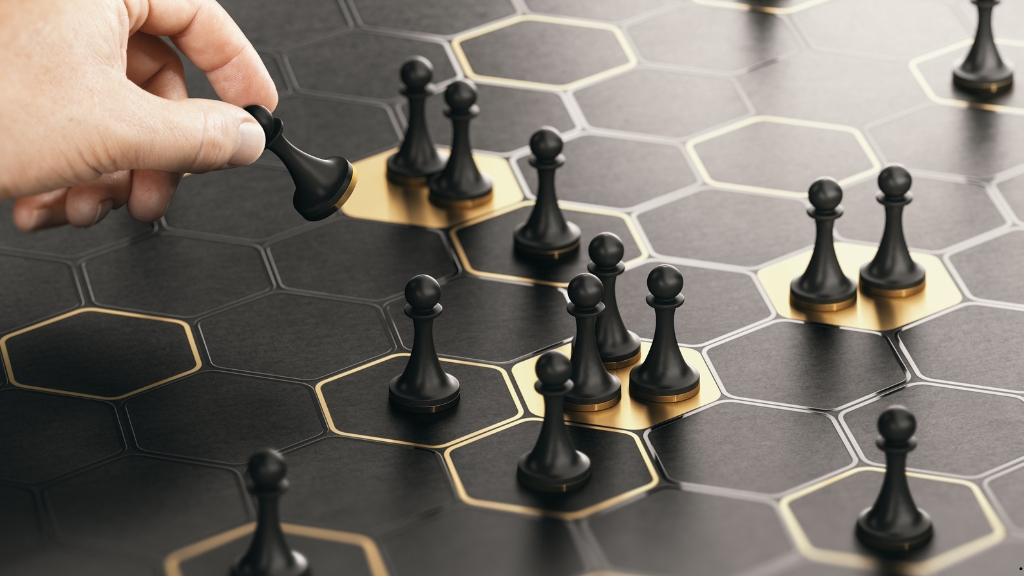Lucky Charms or Strategy? Discover What Truly Enhances Your Wins in Competitions

When it comes to winning, everyone loves a little luck. I’ve often found myself clutching a lucky charm or two, convinced they’ll tip the odds in my favor. But as I’ve explored the world of games and competitions, I can’t help but wonder: is it really luck that leads to success, or is there a deeper strategy at play?
In this article, I’ll dive into the age-old debate of lucky charms versus strategic thinking. I’ll share insights from my own experiences and research to uncover what truly boosts our wins. Whether you’re a casual player or a serious contender, understanding this dynamic could change the way you approach your next challenge. Let’s unravel the mystery together and see what really makes the difference.
Overview of Lucky Charms and Strategy
Lucky charms refer to objects believed to bring good fortune. Many individuals, including competitors and gamers, rely on these symbols for comfort and motivation. Common lucky charms include four-leaf clovers, horseshoes, and personal talismans. The psychological effect of these charms can influence performance, creating a sense of confidence and positivity.
Strategy, on the other hand, involves a systematic plan to achieve specific goals. In gaming and competitions, strategic thinking encompasses tactics such as risk assessment, resource allocation, and opponent analysis. Successful players often combine analytical skills with adaptable strategies, enhancing their ability to navigate challenges effectively.
When comparing lucky charms and strategy, determining which aspect holds more weight isn’t straightforward. Some players swear by their lucky items, claiming these bring them better outcomes. Others emphasize the importance of well-thought-out strategies, often attaining consistent results through careful planning. The interplay between luck and skill showcases a dynamic relationship. Understanding both elements can help sharpen my approach to winning, ultimately boosting my chances in competitions.
The Role of Lucky Charms in Success
Lucky charms play a fascinating role in the pursuit of success. Many people, including myself, turn to specific items believed to bring good fortune during competitions and challenging situations.
Common Lucky Charms and Their Beliefs
Four-Leaf Clovers: Found infrequently, these clovers symbolize hope, faith, love, and luck. Carrying one often boosts morale.
Horseshoes: Traditionally hung above doorways, horseshoes are thought to ward off evil and attract prosperity. Their popularity in homes reflects a belief in their protective qualities.
Rabbit's Foot: Used as a talisman, the rabbit's foot is thought to bring good luck, particularly in gambling scenarios. Its history is rich with cultural significance across various societies.
St. Christopher Medals: Travelers frequently carry these medals for protection during journeys. They represent safety and guidance in unfamiliar places.
Lucky Coins: People often keep special coins for luck during significant events. Their history as tokens connects them to prosperity and success.
Psychological Effects of Lucky Charms
Boosted Confidence: Believing in a lucky charm can help maintain a positive mindset. This mindset often translates into improved performance.
Reduced Anxiety: Charms can act as security blankets. A sense of comfort often reduces performance anxiety, making it easier to focus.
Increased Motivation: The presence of a lucky charm may motivate individuals to try harder. This additional motivation often leads to better results.
Enhanced Focus: With a charm in hand, distractions can fade. This focus often allows for clearer strategy and decision-making.
Self-Fulfilling Prophecy: The belief in luck often leads to actions that reinforce that belief. This cycle can create a tangible link between mindset and outcomes.
Strategies for Winning
I focus on employing effective strategies that maximize my chances for success in games and competitions. Strategic planning forms the backbone of my approach, often proving to be more reliable than relying solely on luck.
Analyzing Effective Strategies
I utilize several key strategies to enhance my winning potential. These include:
Risk Assessment: I evaluate the potential rewards against the risks involved. This systematic analysis helps me make informed decisions during gameplay.
Opponent Analysis: I study my competitors' behaviors and tendencies. Understanding their strategies allows me to anticipate their moves and counteract effectively.
Adaptability: I adjust my strategies based on the dynamics of the game. Staying flexible in my tactics lets me respond to unexpected challenges.
Practice and Preparation: I dedicate time to practice, honing my skills and strategies. Regular preparation increases my confidence and ensures I’m ready for any situation that arises.
Goal Setting: I establish clear, actionable goals. This focus allows me to work toward specific outcomes, guiding my efforts during gameplay.
Case Studies: When Strategy Prevails Over Luck
I find several real-world examples where strategy decisively outperformed luck. These highlight the importance of structured thinking:
Chess Competitions: In tournaments, top players rely on comprehensive strategies rather than luck. Successful chess masters analyze positions and calculate moves several steps ahead, demonstrating that careful planning leads to victory.
Poker Tournaments: Professional poker players leverage mathematical probabilities and psychological tactics. Strategic betting and reading opponents determine success more than fortunate hands.
Athletic Competitions: Elite athletes often attribute success to targeted training, mental conditioning, and strategy. By studying rivals and developing game plans, they enhance their performance far beyond simple luck.
Sales Strategies: In business, strategic planning drives growth. Sales teams that analyze market trends and customer behavior consistently outperform those relying on chance encounters.
These examples illustrate the critical difference between relying on strategy and counting on luck, reinforcing that structured approaches often yield better results.
The Intersection of Luck and Skill
The interplay between luck and skill dramatically influences outcomes in games and competitions. Recognizing how these elements operate can enhance strategic decision-making.
Understanding Chance vs. Skill-Based Games
Chance-based games rely primarily on randomness, with limited player influence. Examples include slot machines and roulette, where outcomes depend on luck rather than skill. In contrast, skill-based games emphasize player tactics and decision-making. Chess, for example, requires strategic thinking and expertise. Players can improve performance through practice and learning different strategies. Understanding these differences helps establish what to rely on while playing.
The Balance Between Luck and Strategy
Achieving success often necessitates a blend of luck and strategy. While lucky breaks can occasionally lead to victory, relying solely on luck can be risky. Successful players integrate strategic techniques—risk management, opponent analysis, and adaptability—into their gameplay. For instance, in poker, a player's skill in reading opponents enhances their chances of winning, even if luck plays a role in the cards dealt. Thus, balancing both elements enables players to perform better in their endeavors.
Expert Opinions and Testimonials
Experts in psychology and game theory weigh in on the debate between luck and strategy. Dr. Susan Baker, a psychologist specializing in performance, states that lucky charms can significantly influence a player's mindset. She emphasizes that "the belief in luck can enhance performance by providing confidence and reducing anxiety," reinforcing the psychological impact of these charms.
Professional poker player Michael Thompson asserts that while luck plays a role, strategy remains the cornerstone of consistent success. He notes, "In poker, a good player can navigate through streaks of bad luck by adapting their strategy, whereas a novice may rely solely on chance." His perspective underscores the importance of tactical skill over mere luck in high-stakes environments.
Furthermore, chess champion Anna Petrova highlights that "in strategic games, every move can reshape the outcome." She emphasizes preparation and practice, suggesting that players who invest time in analyzing opponents and refining their strategies significantly outperform those who rely on chance alone.
Testimonials from seasoned competitors also reflect these insights. John, a competitive runner, shared, "I don’t trust luck. Success comes from training hard, setting goals, and executing strategies on race day." His experience aligns with the understanding that disciplined preparation often leads to victory.
Expert opinions and testimonials reinforce that while luck can provide a fleeting advantage, strategic planning and skill development remain paramount for sustainable success in competitive pursuits.
Conclusion
Navigating the balance between luck and strategy has been an enlightening journey for me. While I appreciate the comfort and motivation that lucky charms can bring, I’ve come to realize that relying solely on them isn’t enough. It’s the careful planning and strategic thinking that truly pave the way to success.
I've seen firsthand how effective strategies can make a significant difference in competitive scenarios. The blend of skill and a bit of luck can create a powerful formula for winning. Ultimately, it’s about harnessing both elements to enhance performance and achieve lasting results. Embracing this approach has transformed my perspective on what it takes to succeed.




